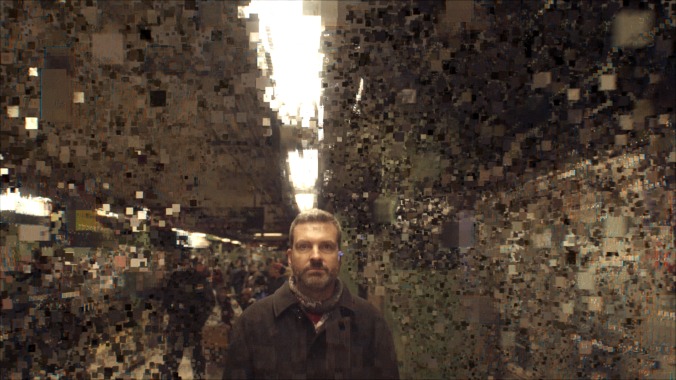The Great Hack is an un-cinematic primer on the Facebook data-mining scandal


Documentary filmmakers continue to wrestle with the grim reality that many of our era’s most important and urgent issues are woefully un-cinematic. The Great Hack’s challenge: find a visual template for the Cambridge Analytica scandal, which involves the unauthorized appropriation and political weaponization of personal data from millions of clueless Facebook users. How do you show that on screen, so that there’s something to distinguish your movie from footage of someone just reading the relevant Wikipedia entry aloud? Directors Karim Amer and Jehane Noujaim opt for shots of random Americans walking the streets, as hundreds of tiny squares, presumably representing pixels, rise from their bodies and float off into space. It vaguely resembles the disintegration scenes from the end of Avengers: Infinity War, except that everyone remains intact; we’re merely watching their various likes and clicks journey to unscrupulous data harvesters. Better than nothing, perhaps, but not exactly an image that chills one to the bone.
The scandal itself is plenty disturbing, albeit one that’s been extensively covered in print over the past 18 months. Jointly founded and financed by Robert Mercer (a hedge-fund multi-millionaire known for donating heavily to conservative causes) and Steve Bannon (several years before he became Trump’s campaign manager and a household name), Cambridge Analytica was a data-mining subsidiary of the British firm Strategic Communication Laboratories (a.k.a. SCL Group), allegedly instrumental in both the Brexit campaign and electing Donald Trump. In early 2018, the public learned that a personality-quiz app used by 270,000 Facebook users allowed Cambridge Analytica to amass information from every individual that any of them had friended—some 87 million Facebook users total. CEO Alexander Nix was surreptitiously filmed bragging about the company’s illegal practices (including entrapment and bribery), and the resulting headlines quickly shuttered its doors, though criminal investigations are still in progress.
The Great Hack spends its first half hour or so recounting the above in greater detail, using now-familiar pop-up graphics of tweets and Facebook entries (plus those pixels leaking from everyone’s phones) as ostensible eye candy. There’s a human element as well—we spend time with Guardian journalist Carole Cadwalladr, who broke several key stories, and Parsons School Of Design professor David Carroll, who sued Cambridge Analytica for access to their data profile of him—but those two figures mostly serve as a reminder that this fundamentally expository material is better served by the page and the classroom. Had Amer and Noujaim (who previously collaborated on The Square, a portrait of the 2011 Egyptian Revolution; Noujaim has also directed such notable docs as Startup.com and Control Room) done some investigative work, tracing specific interactions to specific targeted ads, they might have come up with something a bit more visually dynamic. Instead, we get lots of video snippets currently on YouTube.
More compelling by far, and the only real justification for this film’s existence, is the time The Great Hack spends following whistleblower Brittany Kaiser, who’d served as Cambridge Analytica’s Director Of Business Development during the relevant period. Kaiser began her political career as an Obama intern and later worked with human-rights organizations, only switching to right-wing advocacy because they offered her significantly more money. Her conflicted expressions of regret, informed by what are clearly still warm personal feelings for Nix (whose friendly text message at one point she reluctantly ignores), provides the film with much-needed drama; she’s also visibly nervous as she heads for Washington, D.C. to be interviewed by Robert Mueller’s team, a moment that briefly recalls Citizenfour’s real-time account of history in the making. But there’s no satisfying end point to this movie (which premiered at Sundance as a 135-minute work in progress; over 20 minutes have since been trimmed), which reaches its alarmist conclusion quite early on and then functions more as a frustratingly sporadic video diary. Even its insistence that we worry more about the sophisticated algorithms being employed to influence our behavior now feels ironic, considering the platform on which most people will see it: No sooner will the closing credits begin than you’ll be prompted to start watching something else, based on Netflix’s extensive knowledge of your viewing habits. There’s no putting this genie back in the bottle.